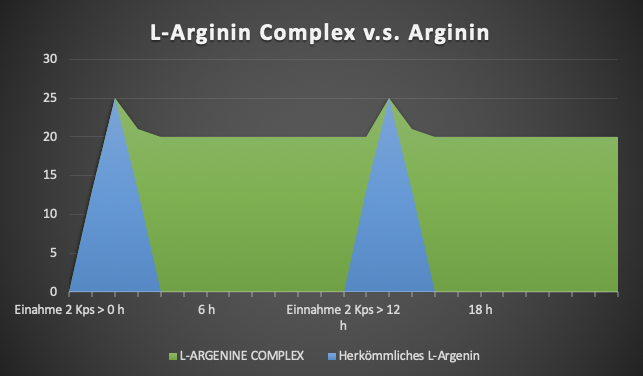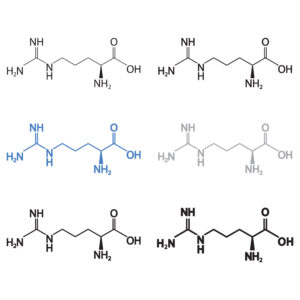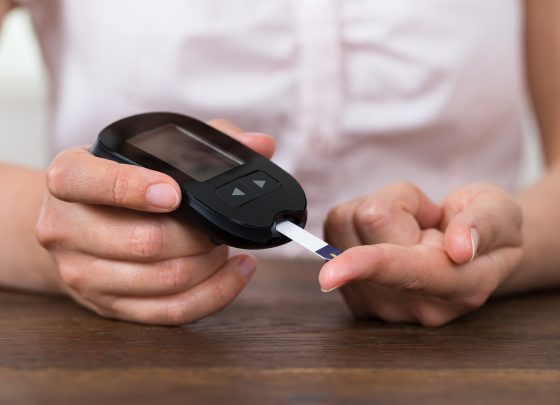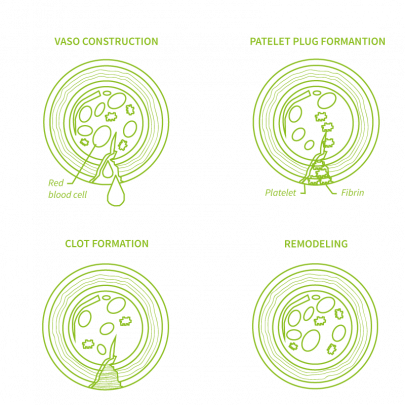Studies as for instance, the one published by the American Diabetes Association, concluded that long term L-Arginine treatment significantly improves peripheral and hepatic insulin sensitivity in type 2 diabetic patients. The methodology applied was a blind study performed during 3 months with diabetic patients:
“In the first month, patients were treated with their usual diet. Then they were randomly allocated into two groups. In group 1, patients were treated with diet plus placebo (orally three times per day) for 2 months. In group 2 patients were treated for 1 month with diet plus placebo (orally, three times per day) and then for 1 month with diet plus l-arginine (3 g three times per day). At the end of the first and the second month of therapy, patients underwent a euglycemic-hyperinsulinemic clamp combined with [6,6-2H2]glucose infusion. A total of 10 normal subjects underwent the same test as control subjects.
RESULTS—In group 1, no changes in basal cGMP (Cyclic guanosine 3′,5′-monophosphate) levels, systolic blood pressure, forearm blood flow, glucose disposal, and endogenous glucose production were observed throughout. In group 2, l-arginine normalized basal cGMP levels and significantly increased forearm blood flow by 36% and glucose disposal during the clamp by 34%, whereas it decreased systolic blood pressure and endogenous glucose production by 14 and 29%, respectively. However, compared with normal subjects, l-arginine treatment was not able to completely overcome the defect in glucose disposal.”









